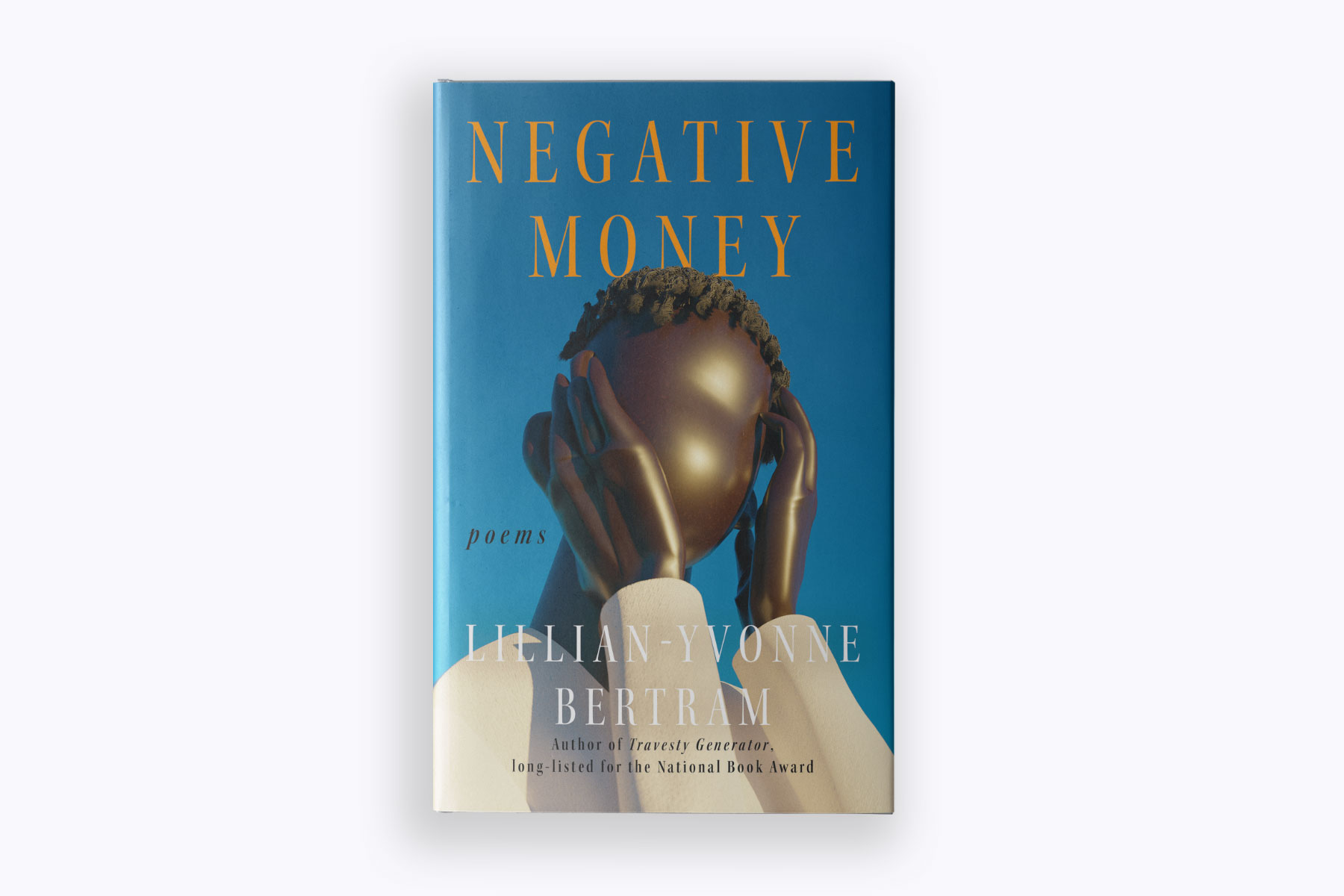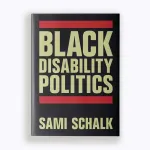*Correction appended.
Just days before two separate Supreme Court rulings ended first affirmative action at colleges and universities and then the Biden administration’s student debt relief plan, National Book Award-nominated poet Lillian-Yvonne Bertram released their latest collection of poems, “Negative Money.”
In “Negative Money,” the eponymous narrator grapples with race, gender and economics as they come of age in a country dominated by the norms of White men. The collection felt prescient. With the end of race-conscious admissions at most higher education institutions, people of color will have to navigate more than ever a central theme in the book: how the identities a person holds can impact not only how much money a person has — or can never have — but also how much value others see in their person and body.
Bertram, currently director of the MFA in creative writing at the University of Maryland, spoke with The 19th about their new collection of poems and how they think about it in light of the recent Supreme Court rulings.
This interview has been edited for length and clarity.
-
More from The 19th
- What will happen without affirmative action in colleges? University leaders fear a lapse in diversity efforts.
- Fewer than 20 Black women physicists in the U.S. have earned tenure. This scholar just joined the club.
- ‘House of Cotton’ uses horror and fairy tales to weave a story of abortion and Black women’s lives in the South
Jennifer Gerson: What would you describe as the theme of this collection and what it speaks to about the current political moment we are in?
Lillian-Yvonne Bertram: I don’t sit down and say, “I’m going to write a book.” These are poems that were written over quite a long time, and then I thought, “OK, I have enough poems for a book.” So then I was thinking about what themes and format they share, and they all circulate around the same sort of central preoccupations — money being one of them, but money in this really broad sense, in the sense of transaction and in the sense of indebtedness and the knowingness of the act of exchange.
This collection isn’t necessarily about money as in bills and coins, but in this broader sense of everything can be sort of transactional and everything can have a kind of exhaustiveness to it — the way you’re always transacting, especially if you’re a woman or a queer person or a person of color, because then everything is an uneven exchange.
The Supreme Court just struck down affirmative action and student debt, last year we saw the Supreme Court overturn Roe v. Wade, it feels like every week we hear about a new bill targeting transgender youth in state legislatures. How do you think people can use this collection of poems to understand this current political climate?
A lot of these poems point to the way that social context can make the same thing completely different. Something that happened 20 or 30 years ago feels so relevant to today … especially if you’re a person of color, especially if you’re a woman, especially if you’re a queer person. It’s a change that nothing happening right now feels like a shocker.
I think for Black people especially, anything that has been done in legislation to Black people will eventually be done to everyone else, so that means nothing ever feels like too far of a leap. Maybe that’s a very cynical view to think that nothing is surprising, but in a lot of ways I look at work that I wrote a long time ago and it doesn’t seem like it could have been that long ago. A lot of these poems feel like they could have been written yesterday.
Questions of imperialism and patriarchy and colonization are evergreen. I look at a lot of my poems and they read differently today because the context in which they’re being received is different. The theme itself always reinvents itself.
Where do you feel this most acutely right now?
I look at what just happened with affirmative action, and it feels like it was bound to happen. I think that all of these things, all of those movements, all of those corrections and systems of accountability, were always ultimately going to be weaponized against the people they were designed to serve. It’s a very calculated move, it’s not a surprising one. I find that frightening.
We are seeing a lot of people doing anything to manipulate and preserve the status quo by twisting and turning the logic of things, claiming that a correction was too much correction, that we have to overcorrect on the correction. That’s what we saw with affirmative action.
What we’re seeing right now with affirmative action is very much in line with what your collection focuses on — the way that intersectionality can define identity, how people cannot be reduced to just one easy identity or label in understanding what it takes to move through the world. How do you see this cultural push for quick classification having a larger political impact?
People move through the world intersectionally. I move through the world as a person of color, as someone who identifies as a Black person, but as a biracial person as well. That’s a completely different experience, because the way that the United States functions is based on literal shades of skin color. My experience as a light-skinned Black person is drastically different than the experiences of a dark-skinned Black person.
What people don’t understand in this conversation about affirmative action is that even if we show up at the same place, we are treated differently. People say to people of color, “Well you got into Harvard, what are you complaining about? You’re good now. You go to Harvard.” There’s not only one way that a person of color or a Black person moves through the world. They can show up at Harvard, but if they’re coming from a different economic background, their experience at Harvard is going to be very different. If you’re a queer person, that’s going to affect that.
It’s very convenient to say, “You got into Harvard because of affirmative action,” while erasing all the other ways that affect how people move through the world. Forget that this takes out of the equation that maybe you are just a really great student and that’s why you got in, and maybe other students are kind of bad. That’s never what gets brought up when we talk about who got in and who didn’t. Maybe you didn’t win because you weren’t fast enough.
Recognizing all of the elements that comprise someone’s identity — frankly, that’s the enemy of efficiency. Economics needs efficiency to work in a certain kind of way. Politics needs efficiency, where it’s expedient to determine who people are based on one or two things. Equity is always at the expense of efficiency.
Given this, what do you think happens next in terms of how identity determines someone’s fate?
I think with what we’re talking about with affirmative action and student debt right now, I feel like behind these things is a very insidious idea that the greatest injustice is that it would be perceived that someone is getting something for free. That that is an almost criminal thing. “How dare someone not pay back their $120,000? How dare they when I had to pay back my $10,000 loan!” People believe that they are personally wounded if someone else gets relief that they didn’t “work” for.
Why is that an injustice? Why is there this idea that affirmative action means someone is getting something they didn’t earn? This goes back to the idea of value is about everything being exchanged, and so if someone is getting something then there is an injustice being done. It’s the rectifier that people cannot stand.
Correction: An earlier version of this article gave an outdated job title for Lilian-Yvonne Bertram.







